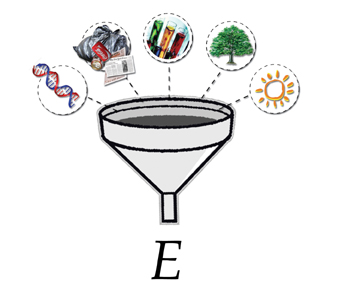"Developing alternative means of producing energy in the forms that humankind needs is crucial to dealing with the ongoing energy crisis,” Weizmann Institute President Prof. Ilan Chet said recently. He went on: “Creating fresh, sustainable methods of satisfying the world’s energy needs will be possible only if we can gain the knowledge to invent completely new technologies. The Weizmann Institute of Science has an obligation to take a lead in global efforts in this field. We believe we can help shape the planet’s future.”
Prof. Chet was referring to an ambitious multidisciplinary research initiative launched by the Weizmann Institute of Science. The scientists involved in the new Initiative for Research in Sustainable and Alternative Energy aim to significantly advance the search for solutions to the world’s most pressing energy problems.
The global energy crisis is a complex problem that involves challenges on the political, economic and scientific fronts. The demand for energy has risen sharply in recent years, fueled by rapidly rising standards of living and expanding populations, especially in industrializing countries such as China and India. If nothing is done to change current patterns, energy demand will rise nearly 60% by the year 2030. Nonrenewable energy sources such as fossil fuels are running out; petroleum-based fuel supplies could be held hostage to political upheavals, affecting the peace and security of Israel and the entire world. The continuing upward spiral of oil prices also threatens the stability of the global economy. As long as energy consumption continues to rise, burning fossil fuels will be a major cause of air pollution, including the accumulation of greenhouse gases in the upper atmosphere, which may already be causing global warming.
Many Weizmann Institute scientists are concerned about this state of affairs, and a number of them have recently made a commitment to join in the search for energy solutions. Says Prof. Mordechai Sheves, Dean of the Faculty of Chemistry: “The special nature of the Weizmann Institute, with its emphasis on multidisciplinary scientific cooperation, makes it one of the most promising places in which to pursue such solutions.”
Institute scientists are already applying a number of original approaches to producing alternative energy. One example is the manufacture of methanol (currently extracted from fossil fuels) using the sun’s energy. If the method proves successful, it may in the future provide a relatively clean, renewable and environmentally friendly fuel.
Scientists from many disciplines will conduct research under the aegis of the sustainable energy initiative. Various research groups in physics and chemistry, for example, will focus on energy conversion, storage and conservation, adding to several projects at the Institute that are already showing progress in converting the sun’s energy to electricity and fuel. A research team in the life sciences plans to investigate ways of utilizing plants and biomass as energy sources. Other scientists are carrying out basic research in nuclear fusion, while new lubricants containing nanomaterials developed at the Institute promise to increase the efficiency of machinery, thereby reducing fuel consumption.
The Weizmann Institute plans to raise significant funds for the Initiative so that cutting-edge energy research can move forward at the pace needed to find timely answers. The plan calls for recruiting promising young scientists as well as established researchers to join the effort and share their expertise with the Institute's multidisciplinary task force of leading scientists. With this impetus to advanced research and innovation, the Weizmann Institute intends to lead the way in finding new and better solutions to meet the world’s growing energy needs.
